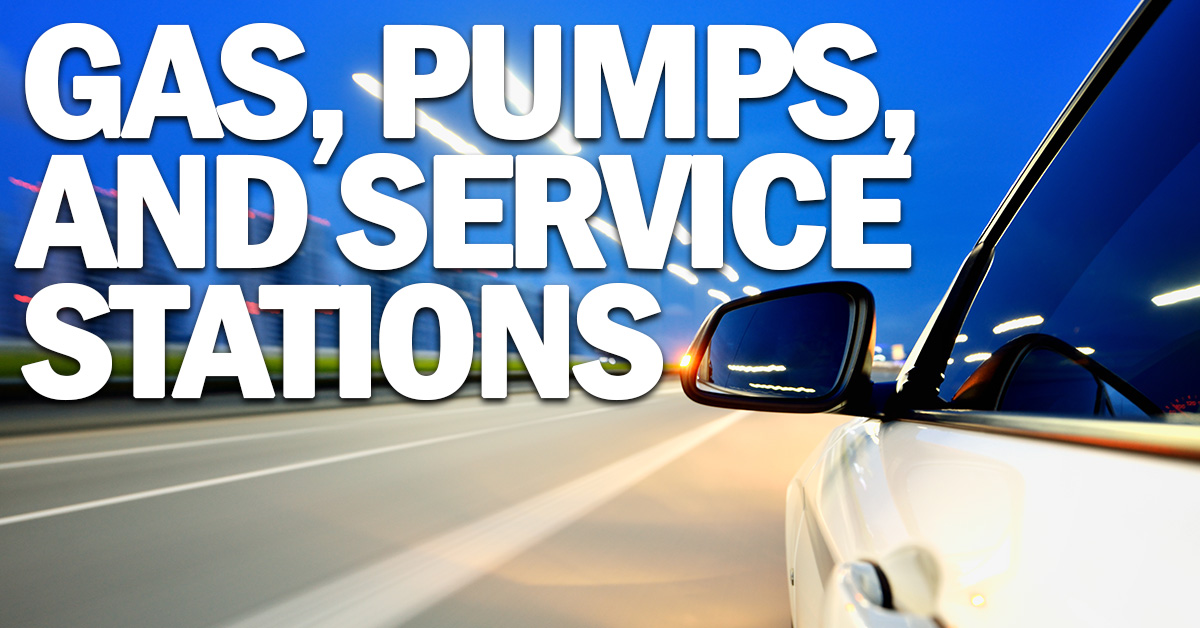Gas, Pumps, and Service Stations

Gas, Pumps, and Service Stations
Most adults have pulled into a station hundreds of times without giving it much thought. Sure, we may glance at the price sign before pulling it, but everything else becomes fairly automatic. We choose a payment method, insert the nozzle, choose our blend, and pump our gas. Pretty straight forward, right? But there is more going on there than you may realize. Here’s a little closer look at gas, gas pumps, and gas stations.
You Can’t Pump Your Own Gas in New Jersey
You at least have the option of pumping your own gas in every state with the exception of New Jersey. An attendant is the only one allowed to pump gas in New Jersey. Oregon also has a full service mandate in some areas.
Gas Stations Have a LOT of Fuel
The average gas station carries about 30,000 to 40,000 gallons of fuel in its storage tanks. Modern storage tanks will not corrode, and safety systems are in place to prevent spillage.
Does Fuel Grade Make a Difference?
Yes and no. Premium-grade fuel is more expensive than economy-grade fuel, and premium-grade fuel can have more additives that can help some vehicles perform better. However, today, the vast majority of vehicles will run just fine on regular fuel. Your owner’s manual specifies premium fuel; it is important you use it to maintain the validity of your warranty.
Is Topping Off Your Fuel Tank a Good Idea?
Some people make a habit of topping off their tank when refueling, either to get as much in as possible or to round up the cost. This excess fuel can end up in the charcoal filter and canister that are designed to filter vapor, not liquid gas. This can potentially damage your engine as vapor can’t escape properly.
How Much Does a Gas Retailer Make on Each Gallon Sold?
After paying for labor, utilities, credit card transaction fees, and other expenses, retail gas stations net from 3 to 7 cents per gallon of gas sold. Many rely on peripheral sales of snacks, beverages, etc. to maximize profits.
You may not give much thought to filling your tank with gas, but you should pay more attention to your car insurance. If you haven’t compared rates in over a year, contact us for a no-obligation insurance review and price quote. We look forward to assisting you!










